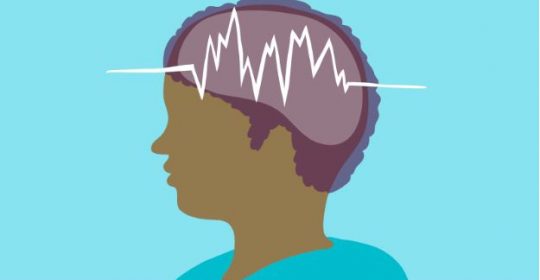
Epilepsy: Causes, Symptoms and Treatments
Epilepsy is a common neurological disorder that causes recurrent and unprovoked seizures. There are two main types of seizures – generalized seizures that affect the whole brain, and focal or partial seizures that affect only one part of the brain. It is more common in younger children and old adults. To treat epilepsy, an early diagnosis is imperative. At GNC Dubai, our licensed neurologists can assist with a diagnosis and provide the right treatment accordingly.
A mild seizure typically lasts a few seconds and may be difficult to recognize. Stronger, more severe seizures cause spasms and uncontrollable muscle twitches and can last anywhere from a few seconds to several minutes. With stronger seizures, those experiencing seizures tend to become confused and may even lose consciousness and may have no memory of it happening.
There are many reasons as to why people may experience seizures including:
- Head trauma
- Low blood sugar
- High fever
- Withdrawal from alcohol
What are the causes and triggers of epilepsy?
Only in a few cases will there be a determining cause. The known causes of seizures usually involve some injury to the brain, these include:
- Head injuries, either from birth or other accidents
- Brain tumors
- Low oxygen during birth
- Meningitis
- Encephalitis
- Genetic conditions that can result in brain injury, such as tuberous sclerosis
- Strokes
Although the definitive causes of epilepsy are unknown, there are factors that are known to provoke seizures in those with epilepsy, including:
- Heavy alcohol or substance use
- Lack of sleep
- Missing medication doses
What are the symptoms of epilepsy?
As epilepsy is caused by abnormal activity in the brain, seizures tend to affect any process that the brain coordinates. Symptoms of seizures vary depending on the type of seizure. In many cases, people will have the same type of seizure each time, so symptoms may be similar during each episode. Common signs and symptoms are temporary confusion, uncontrollable jerking movements of links, loss of consciousness or awareness or psychic symptoms such as fear, anxiety, or deja vu.
Seizures are generally classified as either focal or generalized by doctors, based on how abnormal the brain activity seems to be.
Focal seizures
Focal seizures (or partial seizures) are the result of abnormal activity in just one part of the brain. These fall into two categories:
- Simple partial seizures. This type of seizure doesn’t cause a loss of consciousness but may alter emotions or change the way things look, smell, or feel. Simple partial seizures may also result in involuntary movements of limbs and sensory symptoms such as dizziness, tingling or flashing lights.
- Complex partial seizures. These seizures cause impaired awareness and can involve a change or loss of consciousness. During these types of seizures, patients may find themselves staring into space and not responding properly to their environment.
Generalized seizures
Generalized seizures involve all areas of the brain. There are six types of generalized seizures:
- Absence seizures, previously known as “petit mal”, typically occur in children whose symptoms include staring blankly into space or subtle body movements. These seizures tend to occur in clusters and can cause a brief loss of awareness.
- Tonic seizures cause muscles in the body to stiffen up. This type of seizure will affect the muscles in the back, arms, or legs.
- Atonic seizures, also referred to as drop seizures, will cause a loss of muscle control and can cause patients to suddenly collapse or fall down.
- Clonic seizures are usually associated with rhythmic or repeated jerking muscle movements and will affect the neck, face and arms.
- Myoclonic seizures appear as sudden jerks or twitches in arms or legs.
- Tonic-clonic seizures, previously known as “grand mal” seizures, are the most dramatic type of seizures and causes a loss of consciousness, body stiffening and sometimes even a loss of bladder control.
How can you treat epilepsy?
People with epilepsy are able to manage their symptoms with treatment plans that will be based on the severity of symptoms, their health and how well they respond to initial therapies. There are a variety of treatment options available.
- Anti-epileptic drugs. These medications can reduce the number of seizures that people may be prone to. In a few cases, they may eliminate seizures overall.
- Ketogenic diet. High fat, low carbohydrate diets are beneficial to those patients who don’t respond to prescribed medication.
- Vagus nerve stimulator. This is a device that is surgically placed under the skin on the chest and will electrically stimulate nerves that run through the neck to help prevent seizures.
- Surgery. When medicines fail to provide control over seizures, doctors may recommend surgery as an alternative. Through epilepsy surgery, the surgeon will remove the part of the brain that causes seizures. However, this type of surgery will only be performed when tests show that the seizures have originated in a small, well-defined area of the brain. This is to ensure that the surgery doesn’t interfere with vital functions such as speech, motor function, vision or hearing.

